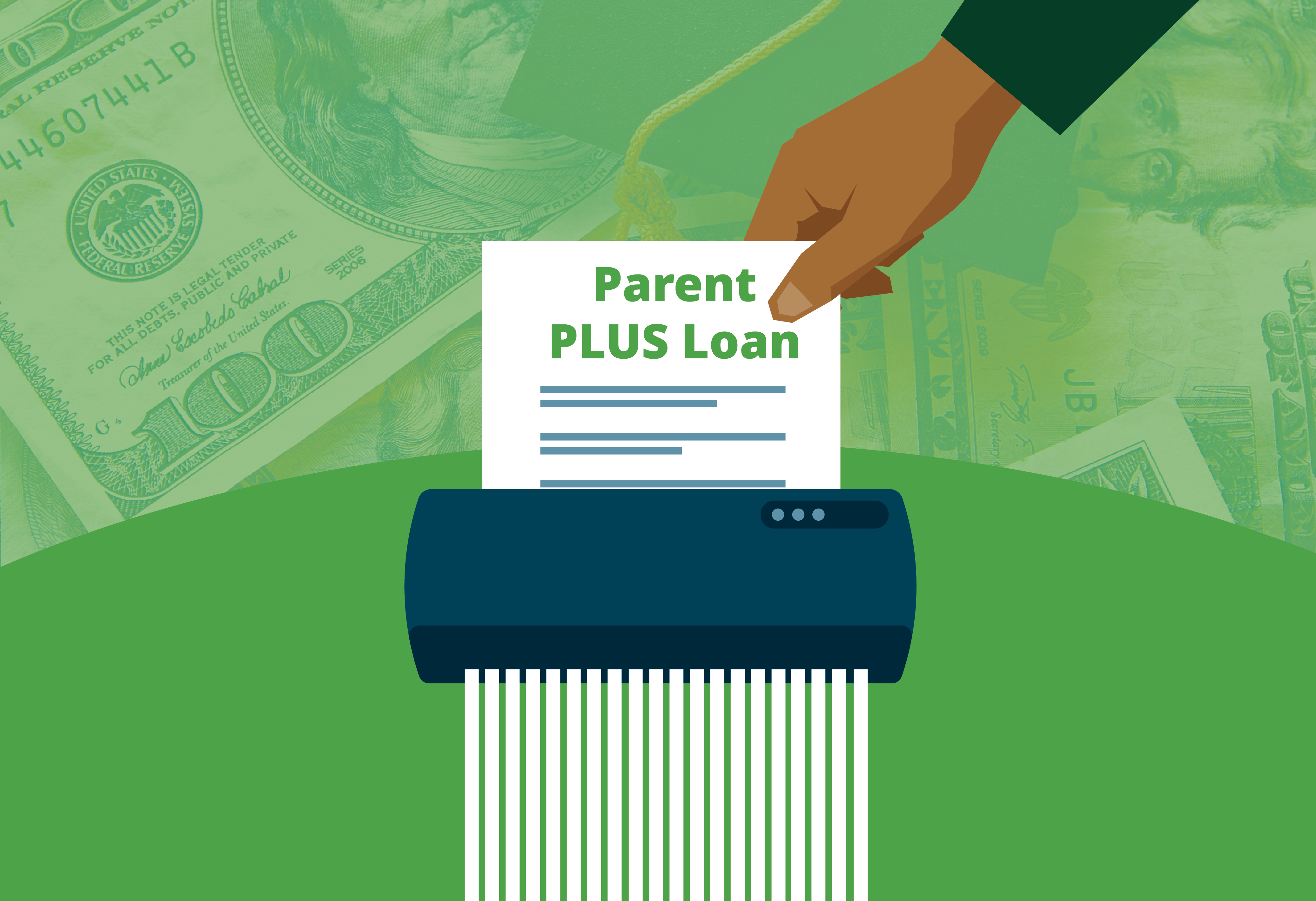Parent PLUS Loans are federal loans available to parents of dependent undergraduate students. These loans allow parents to borrow money to help cover their child’s education expenses. Unlike other student loans, which are taken out by the student themselves, Parent PLUS Loans are specifically designed for parents.
Importance for Parents
It play a crucial role in planning a child’s education financing. Here’s why they are important:
- Supplementing Financial Aid: When other financial aid options (such as grants, scholarships, and student loans) fall short, they can bridge the gap. They provide additional funds to cover tuition, room and board, and other educational costs.
- Flexible Repayment Options: It offer flexible repayment plans, allowing parents to choose a repayment schedule that suits their financial situation. This flexibility helps parents manage their loan payments effectively.
- No Income Requirements: Unlike some private loans, Parent PLUS Loans do not have strict income requirements. Eligibility is primarily based on creditworthiness, making them accessible to a wide range of parents.
Understanding Parent PLUS Loans

- Definition of Parent PLUS Loans:
- Parent PLUS Loans are federal loans issued by the U.S. Department of Education.
- They are available to biological or adoptive parents of dependent undergraduate students.
- These loans cover educational expenses beyond what other financial aid covers.
- Differences Between Parent PLUS Loans and Other Student Loans:
- Borrower: Parent PLUS Loans are taken out by parents, while other student loans (such as Direct Subsidized Loans or Direct Unsubsidized Loans) are taken out by students.
- Credit Check: Parent PLUS Loans require a credit check, whereas most other federal student loans do not.
- Interest Rates: Parent PLUS Loans typically have higher interest rates compared to other federal student loans.
- Repayment Responsibility: Parents are responsible for repaying Parent PLUS Loans, whereas students are responsible for their own loans.
Eligibility Requirements

1. Who Qualifies for Parent PLUS Loans?
Parent PLUS Loans are available to biological or adoptive parents of dependent undergraduate students. Here are the key points:
- Parental Relationship: To qualify, you must be the parent of a dependent student who is enrolled at least half-time in an eligible educational institution.
- Dependent Student: The student must be your biological child, adopted child, or stepchild. Foster children are not eligible.
2. Credit Requirements and Considerations:
Parent PLUS Loans require a credit check. Here’s what you need to know:
- Credit Check: The U.S. Department of Education will assess your credit history. Adverse credit events (such as bankruptcy, foreclosure, or delinquency) may affect eligibility.
- No Adverse Credit: You must not have an adverse credit history. If you do, you can still qualify by obtaining an endorser (co-signer) or appealing the credit decision.
- Creditworthy Endorser: If you choose an endorser, they must have good credit. An endorser agrees to repay the loan if you default.
- Interest Rate: Parent PLUS Loans have a fixed interest rate, which is typically higher than rates for other federal student loans.
The Application Process

Step-by-Step Guide on How to Apply:
- Complete the FAFSA: Before applying for a Parent PLUS Loan, ensure that your child has completed the Free Application for Federal Student Aid (FAFSA). The FAFSA determines eligibility for federal aid.
- Visit StudentAid.gov: Go to the StudentAid.gov website.
- Log In: Log in using your FSA ID (the same one used for the FAFSA).
- Select “Apply for a PLUS Loan”: Choose the option to apply for a Parent PLUS Loan.
- Complete the Application: Provide necessary information, including the school’s name and loan amount.
- Credit Check: The application will trigger a credit check.
- Sign the Master Promissory Note (MPN): If approved, sign the MPN, which is a legal document outlining your responsibilities.
Necessary Documents and Information Needed:
- Your Social Security Number
- Your child’s school information (name, address, and enrollment status)
- Loan amount requested
- Employment and income details (optional but helpful)
Interest Rates and Fees
1. Current Interest Rates :
As of now, the fixed interest rate is 6.28%. It’s essential to note that this rate remains constant throughout the life of the loan.
2. Loan Fees and Additional Costs:
Parent PLUS Loans come with a loan origination fee. Here are the specifics:
- Origination Fee: The origination fee is a percentage of the loan amount and is deducted upfront. For disbursed on or after October 1, 2023, the origination fee is 4.228%. For example, if you borrow $10,000, the actual amount you receive will be $9,577.20 after deducting the fee.
- Interest Accrual: Interest begins accruing as soon as the loan is disbursed. You can choose to pay the interest while your child is in school or defer it until after graduation.
- Repayment Period: The standard repayment period is 10 years, but you can extend it through various repayment plans.
Repayment Plans and Options
1. Standard Repayment Plan:
- Overview: Under this plan, you’ll make fixed monthly payments over 10 years.
- Pros:
- Predictable payments.
- Loan paid off relatively quickly.
- Cons:
- Higher monthly payments.
- May not suit everyone’s budget.
2. Graduated Repayment Plan:
- Overview: Payments start low and gradually increase every two years.
- Pros:
- Eases the burden initially.
- Ideal for parents expecting income growth.
- Cons:
- Total interest paid over time is higher.
- May require financial adjustments as payments increase.
3. Income-Contingent Repayment (ICR) Plan:
- Overview: Payments are based on your income and family size.
- Pros:
- Adjusts to your financial situation.
- Forgiveness after 25 years (if not paid off).
- Cons:
- May result in longer repayment.
- Higher overall interest.
4. Income-Based Repayment (IBR) Plan:
- Overview: Payments are a percentage of your income.
- Pros:
- Based on your financial capacity.
- Forgiveness after 20 or 25 years.
- Cons:
- May extend repayment.
- Potential tax implications.
Conclusion
Parent PLUS Loans serve as a valuable resource for parents who want to support their child’s education. Understanding the nuances of these loans is essential for making informed decisions. Here’s a quick recap:
Frequently Asked Questions
- What’s the interest rate ?
- The current fixed interest rate is 6.28%.
- Remember that this rate remains constant throughout the loan term.
- Can I defer payments?
- Yes, you can defer payments during specific circumstances, such as when your child is in school or facing economic hardship.
- What if I have adverse credit?
- If you have adverse credit, consider obtaining an endorser (co-signer) or appealing the credit decision.
- Are there forgiveness programs ?
- While they don’t qualify for Public Service Loan Forgiveness, income-driven repayment plans offer forgiveness after 20 or 25 years.
- How do Parent PLUS Loans impact my long-term finances?
- Monthly payments, interest costs, and retirement planning are crucial factors to consider.

Leave a Comment